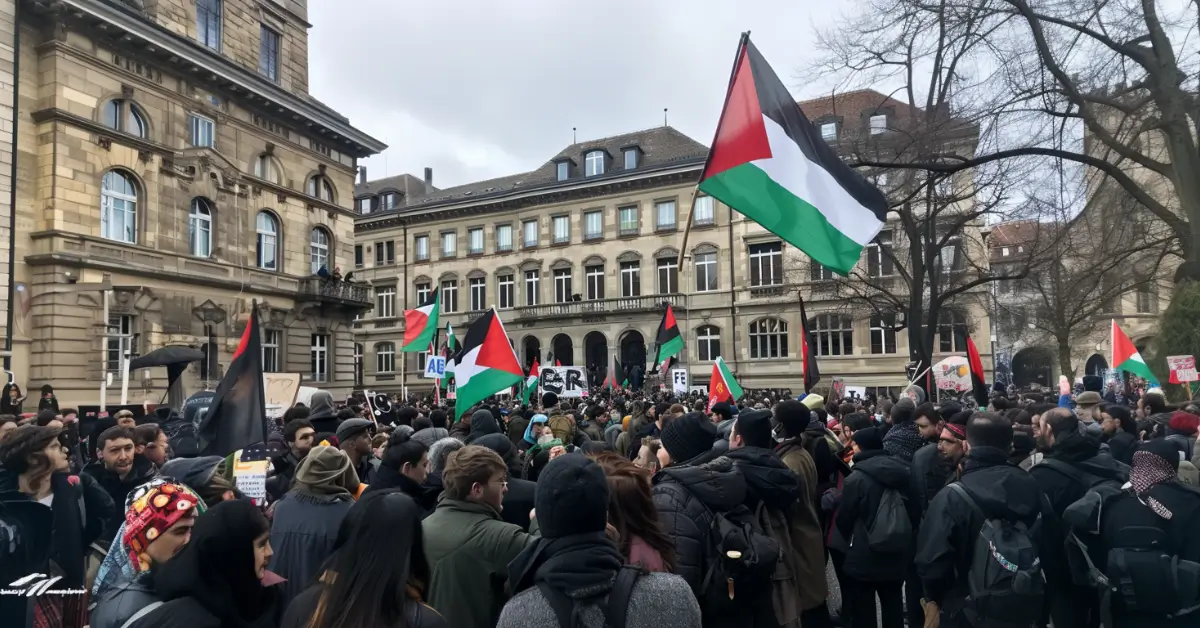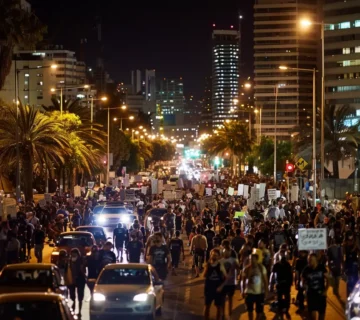The Rising Wave of Student Activism
Recently, a remarkable surge in student activism has swept across Western Europe. Pro-Palestinian protests have made headlines at the University of Bern in Switzerland. This activism is part of a broader response to ongoing conflicts in the Middle East.
The Bern University Pro-Palestinian Protest
Early on a Wednesday, Swiss police were called to the University of Bern. They needed to disband a group of students who had taken up residence inside the university’s facilities. The occupation began on a Sunday night and quickly escalated into a significant protest. Students demanded an academic boycott of Israeli institutions. These students were part of a more substantial wave of protests across European and American universities.
The student demands were precise: they called for an end to what they described as the bloodshed in Gaza and sought to sever academic and business ties with Israel. This protest at Bern was a response to the violence following the October 7 attack by Hamas, which led to significant casualties and a robust military response from Israel.
University Response and Police Action
The University of Bern’s management deemed the student occupation “unacceptable,” leading to police intervention. The university rector, Christian Leumann, expressed openness to dialogue. However, he criticized the occupation method, stating that such actions do not foster a constructive environment. This sentiment was echoed by other European educational institutions facing similar dilemmas in handling student activism.
Broader Impact and Reflections
The events at the University of Bern are a snapshot of a larger, more complex canvas of global activism. Universities are increasingly becoming arenas for political activism and expressions of solidarity with global causes. This phenomenon raises questions about the role of educational institutions in political conflicts. It also highlights the balance between maintaining order and supporting freedom of expression.
The University of Lausanne experienced similar protests, with students demanding the end of partnerships with Israeli universities. Responses from university administrations across Europe vary, with some opting for dialogue and others for police intervention.
Conclusion
As the academic year winds down, student protests’ enthusiasm offers a moment for reflection. Pro-Palestinian camps, like the one at the University of Bern, highlight the interconnectedness of global educational communities. These events underscore the power of collective student action and the complexities academic institutions face.




